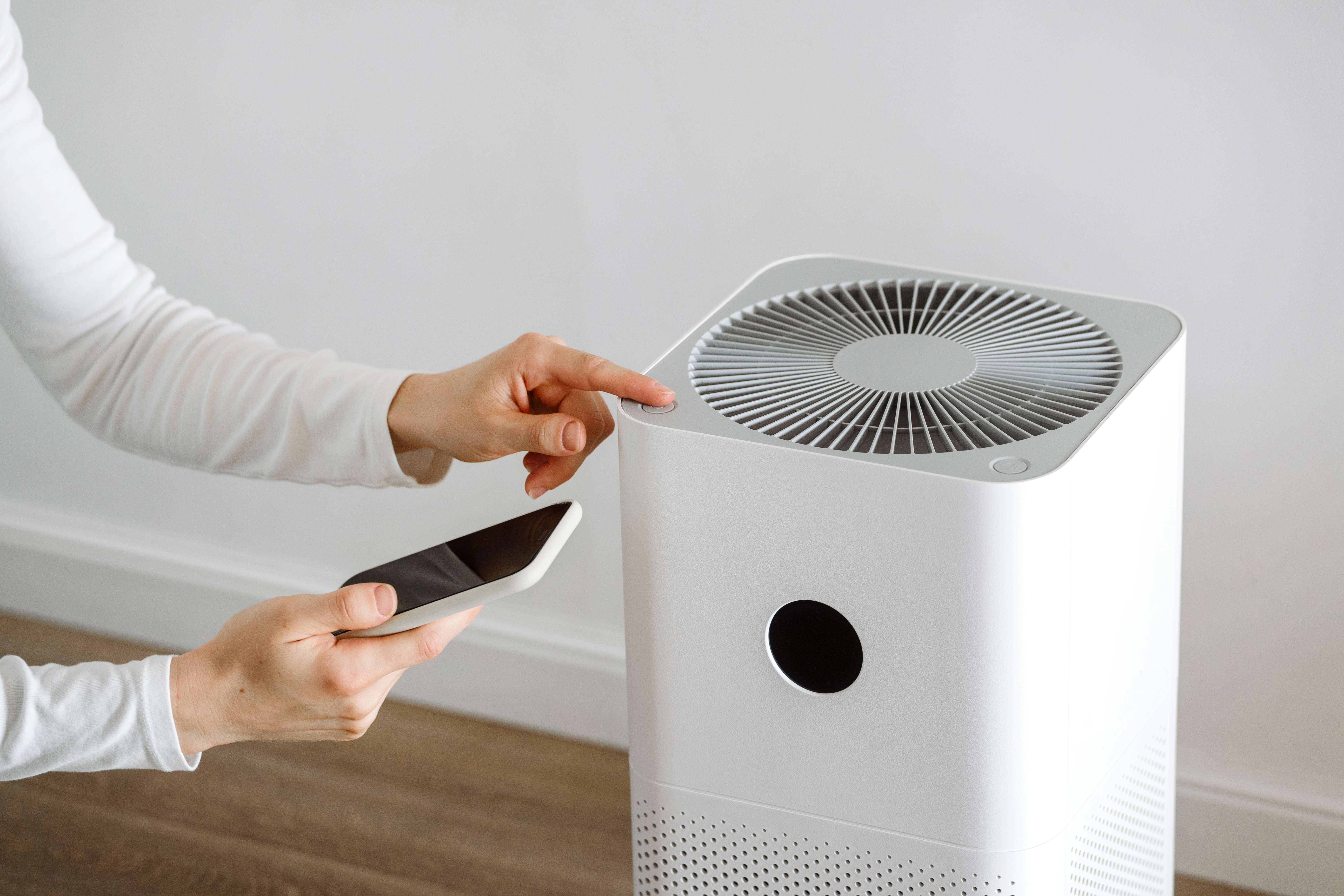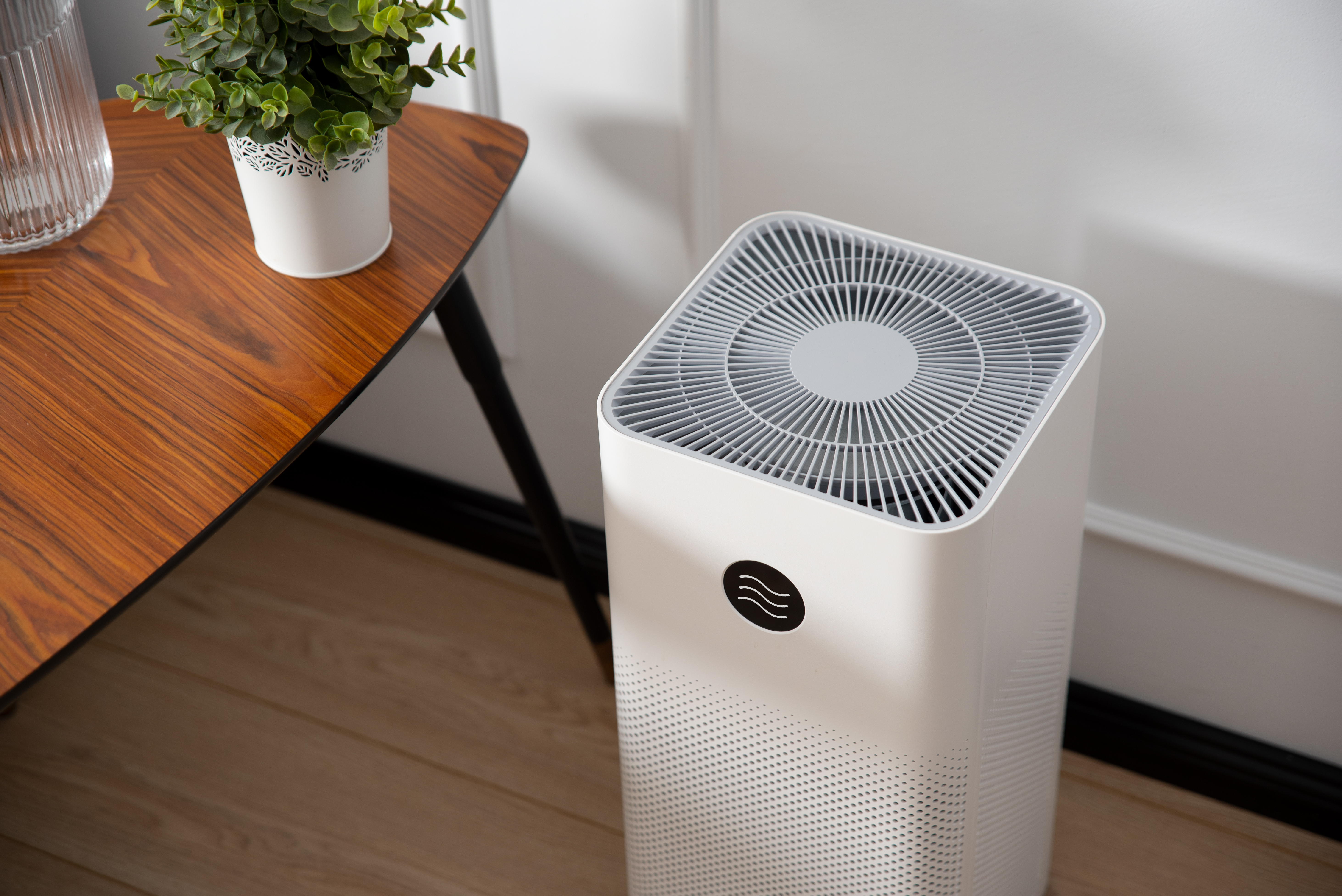
The average cost of an electric furnace ranges between $1,700 and $7,000, depending on the size, ductwork, and complexity.
The ions may be negative, but the reviews are mixed


Ionic air purifiers use negative ions to target and weigh down airborne particles.
They’re quiet, low-maintenance, and effective at removing cooking smells and smoke.
Ionizers also have major drawbacks, like ozone production and poor pollutant removal.
Alternatives like HEPA filters and whole-home filtration systems offer broader benefits.
Ionic air purifiers, aka ionizers, promise cleaner air with quiet operation and no filters to change. But what’s really floating beneath the surface? While these devices use negative ions to zap and remove pollutants from the air without using filters, they come with downsides that could raise your eyebrows—or your asthma symptoms. Before you bring one home, let’s clear the air and discuss the pros and cons of ionic air purifiers.

Ionic air purifiers clean the air in your home by releasing negatively charged ions. These ions cling to airborne particles like dust, smoke, and pollen. The particles become heavier, so they fall to the ground or attach to nearby surfaces where you can dust or vacuum them up.
This makes ionizers filter-free and virtually silent, which makes them appealing to many homeowners. But the catch is that the particles aren’t gone or filtered away—they’re just waiting to be kicked up again. Another downside is that many ionizers produce ozone, a known respiratory irritant.
| Pros of Ionic Air Purifiers | Cons of Ionic Air Purifiers |
|---|---|
| Quiet and energy efficient | Produce ozone (a lung irritant) |
| No filters to replace | Don’t fully remove pollutants |
| Effective on odors and smoke | Not effective for trapping large particles |
| Compact and low-maintenance | Can cause surface buildup |
| Can reduce certain allergies | May worsen indoor air quality |
| Affordable | Not effective in all rooms or uses |
Despite some controversy over ozone, ionic purifiers do have some attractive perks. An air quality professional can help you determine whether the pros are worth it for your home.
Because they don’t rely on filters and fans, ionizers hum quietly in the background—if they make noise at all. This makes them ideal for bedrooms, home offices, and anyone who is tired of the white noise produced by traditional air purifiers.
When it comes to energy savings, cleaner air from an ionizer comes at a lower price. Ionic air purifiers use little electricity, making them a more eco-friendly option for around-the-clock use.
Forget expensive replacement filters or clogged HEPA filters. Most ionizers don’t use filters at all, which reduces long-term costs and maintenance requirements.
Some ionizers are surprisingly good at tackling cigarette smoke or kitchen smells. They target the smallest airborne particles and gases and remove them from the air.
Ionic purifiers are often smaller than their filter-using competitors, making them easier to fit into your space. You can fit them on shelves or nightstands without disrupting your decor.
Buyers on a budget will appreciate that many ionic air purifiers cost less up-front than HEPA air purifiers. And since you don’t need to replace filters, they’ll remain cost-effective, too.
The downsides of ionic air purifiers are harder to ignore, especially the effects of ozone production. We’ve got the details you need to make an informed decision.
The biggest red flag of ionizers is that many emit ozone, a gas that can irritate the lungs, worsen asthma, and lead to respiratory issues after long-term exposure. The U.S. Environmental Protection Agency (EPA) warns against running high-ozone devices in homes, especially in small or poorly ventilated areas.
Be cautious when running devices that produce ozone in your home. Ozone is a gas and a lung irritant that can trigger asthma symptoms and cause respiratory issues over time. If you run these devices, be sure to ventilate the room.
Ionic air purifiers make particles settle, but they don’t trap them or remove them from the environment. Therefore, slight disturbances like air movement or walking past can make those allergens reenter the air (unless you’re constantly cleaning surfaces).
Is your ionic air purifier cleaning your air or just pushing particles around? The answer depends on the size of the particles. Dust, pet hair, and dander are too heavy for some ionizers to handle. If allergies are a concern, choose a filter-based air purifier that can do more heavy lifting.
If you run an ionizer in your home, you might notice a black ring around the unit. This residue buildup indicates that the device is doing its job and removing particles from the air. However, it requires frequent cleaning of the area, including wiping and vacuuming.
For people with asthma or chronic respiratory issues, ozone from ionic air purifiers can lead to difficulty breathing or other health risks. If you or someone in your household has respiratory issues, consider an air purifier with a filter rather than an ionizer for ozone-free air.
Not having a fan means ionic air purifiers don’t blow air or create additional noise, but it can also mean that ionizers don’t circulate air well enough to make a measurable difference in large or high-traffic rooms. You may need to run more than one ionic air purifier or pair it with an air purifier with a filter for cleaner air.
If you’re second-guessing an ionizer, you’re not out of options. Consider these alternatives that may better fit your needs and help improve your indoor air quality.
HEPA Air Purifiers: HEPA (High-Efficiency Particulate Air) filters remove 99.97% of airborne particles, including dust, pollen, mold, and pet dander. They also do not release ozone into the air.
Carbon Filter Air Purifiers: Activated carbon traps odors, smoke, and volatile organic compounds (VOCs) for cleaner-smelling indoor air.
UV-C Air Purifiers: These modern filters use ultraviolet light to trap or neutralize airborne bacteria and viruses. Some also include HEPA filters for better air filtration, and you can have an expert install UV lights in your HVAC system.
Electrostatic Precipitators: These devices are similar to ionizers, but rather than letting particles settle on surfaces, they attract and trap them on internal plates or filters.
Whole-House Air Purifiers: These large air purifiers fit into home HVAC systems and provide consistent, large-scale air filtration throughout homes. A local air conditioning repair pro can help you select and install a whole-house air purifier.
Only you can decide whether an ionizer is right for you by weighing the pros and cons against your needs. If you value silence and low-maintenance over more effective air cleaning and you’re vigilant about cleaning surfaces, an ionic air purifier might suit your space. Then again, if respiratory health is a top priority and you want the best air filter for indoor air quality, it may be worth it to invest in a high-quality HEPA or hybrid filtration system.
If you’re unsure, call an indoor air quality testing company near you to assess your space and recommend the best filter for your situation.
From average costs to expert advice, get all the answers you need to get your job done.

The average cost of an electric furnace ranges between $1,700 and $7,000, depending on the size, ductwork, and complexity.

A mini-split allows for zoned cooling, helpful for cooling spaces like garages. Learn the cost to install a mini-split unit in a garage with this guide.

Discover how much R-22 refrigerant costs per pound based on factors such as the size, age, and location of your HVAC unit.

Baseboard heater covers can endure a lot of wear and tear, but eventually you’ll want to replace them. Here’s the best way to switch out baseboard heater covers.

Energy bills rising? Here’s how to perform a DIY duct leakage test to locate any damage in your ductwork and restore your energy-efficient home.

You’ll need to get creative if you want to run your portable AC in a windowless room. Here’s how to vent a portable air conditioner without a window.